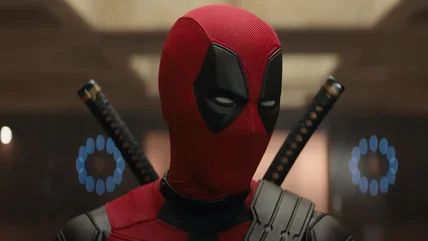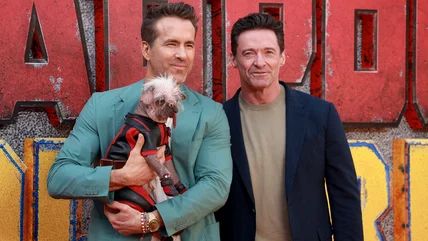10 Lessons Marvel Can Learn from Deadpool & Wolverine
“Deadpool & Wolverine” has defied expectations since its release, establishing itself as a standout entry in the Marvel Cinematic Universe (MCU) and achieving remarkable success at the box office. Both critically and financially, the film has been a significant win for Marvel Studios during a period when the franchise, and the superhero genre as a whole, faced declining public confidence.

As of now, the MCU is navigating through the second half of Phase 5, which began in 2023 with “Ant-Man and the Wasp: Quantumania”—a sequel that unfortunately fell flat, despite being designed to kickstart the Multiverse Saga and formally introduce the much-anticipated villain, Kang the Conqueror. However, Kang’s presence was cut short as the character, along with actor Jonathan Majors, was dropped by the studio shortly after. Although “Guardians of the Galaxy Vol. 3″ rekindled some faith in Marvel’s storytelling capabilities—thanks in part to director James Gunn, who subsequently left the MCU to spearhead a reboot of the DC Universe—”The Marvels” ended the year with disappointing box office results.
These developments suggest that, despite the renewed energy brought by Ryan Reynolds and Hugh Jackman in “Deadpool & Wolverine,” the MCU’s trajectory remains uncertain. To regain its former glory, Marvel Studios must embrace some hard lessons from the successes and failures highlighted by this latest film.
1. The Irreplaceable Power of Star Talent
It’s undeniable: star power sells. Ryan Reynolds and Hugh Jackman have demonstrated this once again, proving that no amount of digital effects or plot twists can substitute for the magnetic draw of charismatic, beloved actors. As the 2023 SAG-AFTRA strike underscored, actors bring more than just their on-screen presence—they are pivotal to a film’s promotional success. The MCU, a franchise that has historically banked on audience loyalty built over years, has perhaps grown complacent in this regard.

During the MCU’s heyday, it was almost guaranteed that the films would be box office hits, with stars like Robert Downey Jr. and Chris Evans leading the charge. Back then, marketing was less about convincing audiences and more about celebrating the next chapter in a beloved saga. However, with the MCU currently flooded with a mix of hits and misses, the landscape has changed. Promotion now matters more than ever. Reynolds and Jackman fully embraced this challenge, driving a marketing campaign that went beyond the conventional—something Marvel needs to replicate in future ventures. It’s no longer enough to have big names; Marvel needs stars who are committed to their roles, both on and off the screen.
2. Maintaining the Element of Surprise
Marvel has traditionally thrived on surprises, but they need to be careful not to spoil their own magic. In “Deadpool & Wolverine,” many cameos were unveiled before the film even hit theaters, diminishing the surprise factor for audiences. For instance, Ryan Reynolds was quick to post thank you notes on social media to the movie’s surprise contributors. While this might seem like a thoughtful gesture, it inadvertently stole the thunder from fans who hadn’t yet experienced the reveals firsthand.
A similar misstep occurred with the pre-release footage of Dafne Keen’s X-23. The decision to showcase her character in trailers, merely to highlight the film’s emotional depth, was controversial enough that Kevin Feige felt compelled to address it publicly. The move arguably undercut one of the film’s most impactful moments, robbing it of its intended emotional punch. Marvel needs to return to its roots by guarding its surprises more jealously. Letting organic buzz build from unexpected moments in the theater could reignite excitement and keep audiences guessing.
3. Fan Engagement Is Key: Learning from Gambit’s Success
One of the most talked-about moments from “Deadpool & Wolverine” was Channing Tatum’s surprise appearance as Gambit—a character he had long been passionate about bringing to the big screen. This cameo not only delighted fans but also reignited conversations about a possible standalone Gambit film. For years, Tatum had been vocal about his desire to portray the iconic X-Man, and this brief appearance has only fueled fan interest further.

Marvel now faces a pivotal decision: Should they capitalize on this momentum and officially cast Tatum as the MCU’s Gambit, or should they risk a recast, knowing that any new choice will be unfavorably compared to Tatum’s portrayal? The challenge lies in balancing fan service with long-term strategic planning. Marvel must tread carefully, recognizing that fan engagement and loyalty can be a double-edged sword. The wrong move could alienate a passionate fanbase, while the right one could create a new cornerstone character for the MCU.
4. Embrace New Storytelling Techniques
“Deadpool & Wolverine” has succeeded in part because it took risks with its narrative structure, blending humor with heartfelt moments and a bit of the absurd. This combination worked exceptionally well, providing a fresh take in a genre that sometimes feels oversaturated with formulaic plots.
Marvel should take note. Audiences are hungry for originality. While the MCU has been known for its interconnected storylines and universe-building, there is a growing demand for films that can stand alone and offer something different. Marvel should consider experimenting with different genres, tones, and storytelling techniques to keep their narratives fresh and engaging.
5. Don’t Underestimate the Value of the Unexpected
The appeal of “Deadpool & Wolverine” extends beyond just its star-studded cast; it lies in its ability to surprise audiences with unexpected character arcs, comedic moments, and cameos. This unpredictability is part of what made early MCU films like “Guardians of the Galaxy” so beloved. Moving forward, Marvel needs to remember that part of the fun of the MCU was never quite knowing what was coming next.
To keep the audience engaged, Marvel should continue to mix things up. Whether it’s through surprising team-ups, unexpected plot twists, or bringing back fan-favorite characters in unforeseen ways, the element of surprise should be a core component of their strategy.
6. The Importance of Tone Consistency
One of the reasons “Deadpool & Wolverine” resonated so well with audiences is because it maintained a consistent tone throughout—combining action, humor, and heartfelt moments seamlessly. Marvel’s recent offerings, on the other hand, have often felt tonally disjointed, jumping between humor, drama, and action without a clear narrative thread.
Maintaining a consistent tone is crucial for audience immersion. Marvel should ensure that future projects have a clear vision that aligns with the film’s intended emotional impact, rather than feeling like a mishmash of different genres and styles.
7. Quality Over Quantity
The MCU has grown exponentially over the years, with numerous films and Disney+ series debuting each year. However, this rapid expansion has led to a decline in overall quality, with some projects feeling rushed or underdeveloped. “Deadpool & Wolverine” stands out precisely because it feels like a polished, carefully crafted piece of entertainment.
Marvel must take this to heart: Sometimes, less is more. Focusing on a few high-quality projects each year, rather than flooding the market with content, will help maintain the MCU’s reputation for excellence and keep audiences excited for each new release.
8. Leverage Established Characters Wisely
The use of established characters like Deadpool and Wolverine was key to this film’s success. These are characters with rich histories and strong fan followings, and Marvel smartly leveraged their popularity to breathe new life into the franchise.
However, the lesson here is not just about using popular characters but using them wisely. It’s about understanding the core of what makes these characters resonate with audiences and ensuring their portrayals are true to those roots. Marvel should continue to build on established characters while carefully crafting new ones that are just as compelling.
9. Listen to the Fans, But Stay True to the Vision
Fan feedback is a double-edged sword. While it’s important for Marvel to listen to its audience, it’s equally important to stay true to its creative vision. “Deadpool & Wolverine” balanced this well, offering fan service without compromising the integrity of the story.
Marvel should continue to engage with its fanbase, but not at the expense of its storytelling goals. The key is finding a balance—giving fans what they want while also delivering the unexpected and maintaining the creative spirit that has defined the MCU from the start.
10. Reinvigorate the Franchise with Bold Choices
Perhaps the most significant lesson from “Deadpool & Wolverine” is the importance of taking bold creative risks. The film pushed boundaries and wasn’t afraid to deviate from the formula, and this daring approach paid off. As Marvel moves forward, it must remember that innovation is key to staying relevant in an ever-evolving entertainment landscape.
Marvel needs to reinvigorate the franchise by embracing bold, innovative choices, whether that means introducing new characters, exploring different genres, or telling stories that challenge the status quo. Only by daring to be different can Marvel hope to recapture the magic that once made it the most exciting franchise in Hollywood.
In conclusion, while “Deadpool & Wolverine” is a testament to the enduring appeal of the superhero genre, it also serves as a wake-up call for Marvel Studios. The path to revitalizing the MCU lies in embracing these lessons—focusing on quality storytelling, maintaining a consistent tone, leveraging star power, and above all, taking creative risks. If Marvel can do this, the MCU will not only survive but thrive in the years to come.





